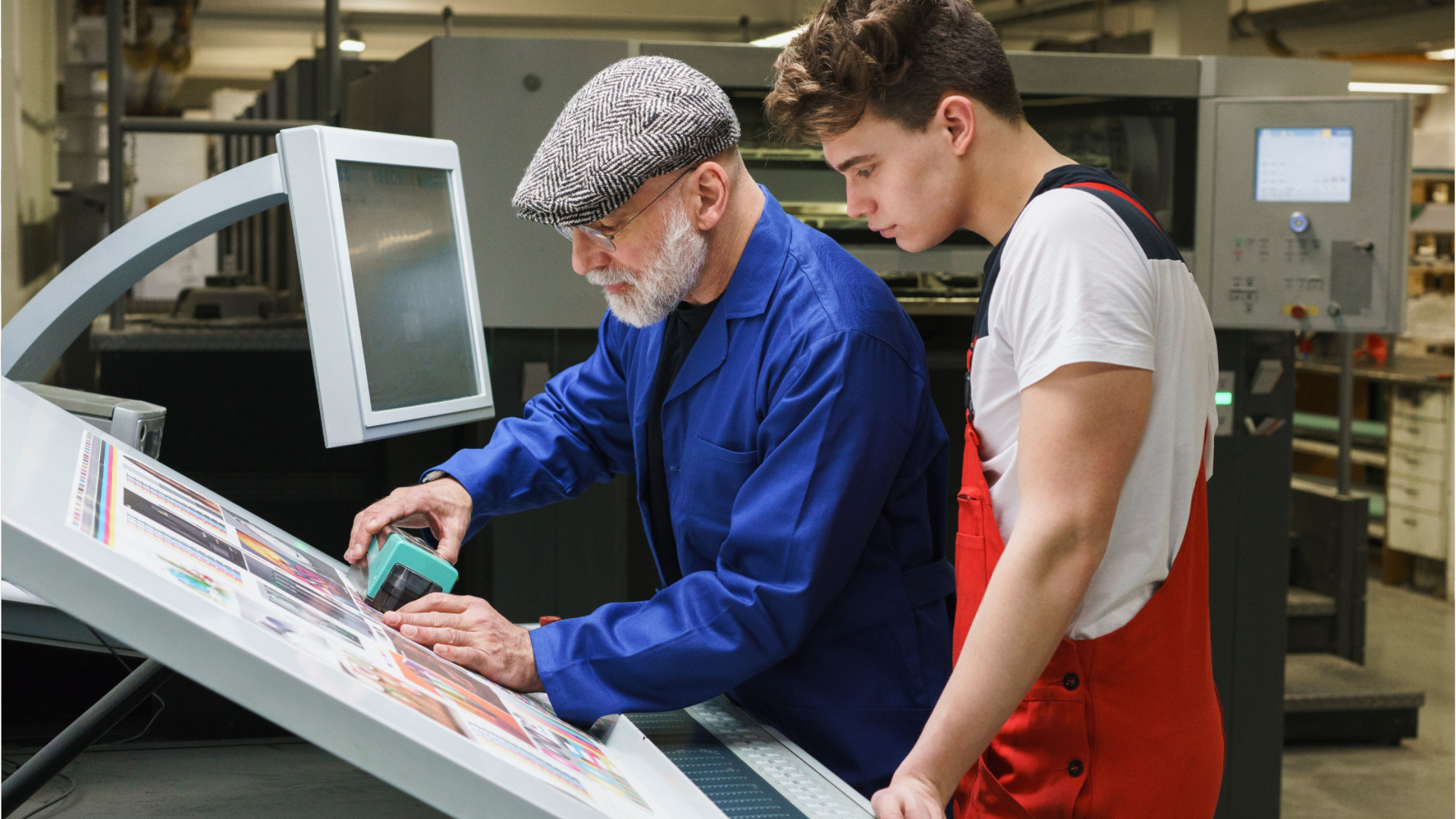Prepress Technicians & Workers
Electronic Prepress Operator (EPP Operator), Plate Maker, Prepress Operator, Prepress Technician
 Select a military branch to see samples.
Select a military branch to see samples.
Public Affairs; Public Affairs Apprentice; Public Affairs Craftsman; Public Affairs Helper; Public Affairs Journeyman
No similar titles were found.
No similar titles were found.
Advanced Visual Information-Graphics Marine
No similar titles were found.
No similar titles were found.
What they do:
Format and proof text and images submitted by designers and clients into finished pages that can be printed. Includes digital and photo typesetting. May produce printing plates.
On the job, you would:
- Generate prepress proofs in digital or other format to approximate the appearance of the final printed piece.
- Proofread and perform quality control of text and images.
- Enter, position, and alter text size, using computers, to make up and arrange pages so that printed materials can be produced.
Knowledge
Engineering and Technology
- computers and electronics
- design
Arts and Humanities
- English language
Math and Science
- arithmetic, algebra, geometry, calculus, or statistics
Manufactured or Agricultural Goods
- manufacture and distribution of products
Skills
Basic Skills
- keeping track of how well people and/or groups are doing in order to make improvements
- listening to others, not interrupting, and asking good questions
Problem Solving
- noticing a problem and figuring out the best way to solve it
Abilities
Verbal
- communicate by speaking
- listen and understand what people say
Ideas and Logic
- make general rules or come up with answers from lots of detailed information
- notice when problems happen
Personality
People interested in this work like activities that include data, detail, and regular routines.
They do well at jobs that need:
- Attention to Detail
- Dependability
- Cautiousness
- Perseverance
- Adaptability
- Achievement Orientation
Technology
You might use software like this on the job:
Graphics or photo imaging software
- Adobe Creative Cloud software
- Adobe Illustrator
Presentation software
- Microsoft PowerPoint
Desktop publishing software
- Adobe InDesign
- QuarkXPress
Education
Education: (rated 3 of 5)
high school diploma/GED or
associate's degree
usually needed
associate's degree
usually needed
Job Outlook
Below Average
New job opportunities are less likely in the future.
Explore More
- Etchers & Engravers
- Office Machine Operators
- Photographic Process Workers & Processing Machine Operators
- Print Binding & Finishing Workers
- Printing Press Operators
You might like a career in one of these industries:
See more details at O*NET OnLine about Prepress Technicians & Workers.






